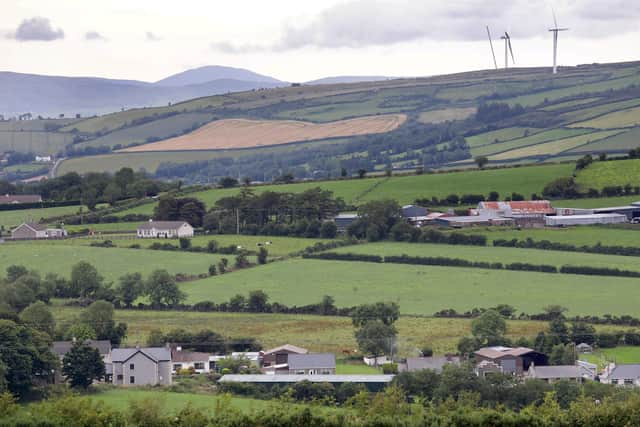What does Windsor Framework mean for Agriculture?
and live on Freeview channel 276
This is a positive step forward to addressing concerns the Ulster Farmers’ Union (UFU) has been raising in Belfast, London and Brussels about the Northern Ireland (NI) Protocol.
Seed potatoes
The ban on seed potatoes being imported from Great Britain (GB) to NI has been lifted for farmers. Whilst details are being ironed out.


The green lane
Advertisement
Advertisement
Seeds and plants for planting in NI soil will be in the green lane, as well as machinery being imported from GB to NI through a special plant label.
EU single market
Access to the single market has been maintained for NI agriculture products. This is vital and very important that the benefits are recognised by the agricultural community.
Remaining issues
Whilst the UFU welcome the progress that has been made, other issues still remain.
Veterinary medicines
The Prime Minister has reassured industry that a permanent solution on veterinary medicines will be found during the three-year extension to the derogation granted pre-January 2023. The UK government have stated that it ‘is clear that a solution must guarantee the existing and long-established flows of trade between GB and NI on which so many people and businesses rely. The UFU along with veterinary colleagues want to see an arrangement similar to that which was found for human medicines being implemented.
Livestock movements
Advertisement
Advertisement
Disappointingly livestock movements from NI to GB have not been resolved. Although the EU amended its ‘delegated regulation’ allowing for cattle and sheep to move outside the EU regulatory zone and return for up to 15 days - in practice the requirements for it to work have not been implemented.
Livestock marts in GB are required to be APHA approved export centres, with all animals being of the same health status. Scottish OTF status for TB exempts them from having to be TB tested pre-GB sale or show, but English/Welsh breeders would have to TB tested pre-GB sale/show. This means if the NI animals aren’t sold at an APHA approved centre (at present only Carlisle is approved) they remain in GB for six months before travelling back to NI, making it financially unviable.
Solutions to these problems require further dialogue and internal UK conversations, with DAERA, DEFRA, fully understanding the solutions previously agreed in order that they can be implemented. Extra bureaucracy for export centers should be minimised and a commitment shown from all breed societies that NI livestock are a valued part of the internal UK market.
Retagging livestock
Retagging of livestock coming from GB to NI is not requirement under any agreement. DAERA must communicate this message to all DVO’s.
Trees
Advertisement
Advertisement
Whilst agreement has been reached on some species of trees being able to be imported from GB to NI. The UFU want to see all species of trees that remain prohibited from GB such as Cherry, Hazel and Hawthorn being available for our members to plant in Northern Irish soil.
The red lane
Agri intermediate goods or inputs such as grain for animal consumption and plant protection products will be in the red lane. The UFU will be seeking clarity as to the level of bureaucracy required - is this the current level of checks or an increase?
Resolution
UK government have said that technical talks will continue to resolve all outstanding issues that the new framework has not provided solutions for.
Democratic Deficit
UFU accept that some EU legislation must be adhered to in order to trade within the EU single market. However, future concerns NI agriculture must be listened to within the EU and how for example UFU can voice its opposition to the EU Animal Health Law applying in NI. UFU will be analysing how proposed mechanisms and stakeholder engagement would impact on agriculture.
Moving forward
Advertisement
Advertisement
The UFU will continue to seek clarity on some issues over the next days and weeks and make the case for what is best for the agriculture sector in NI. However, we maintain our call on this UK government or any future government to seek an SPS/Veterinary agreement between the UK and EU. This type of agreement would eliminate many of the challenges that still remain.